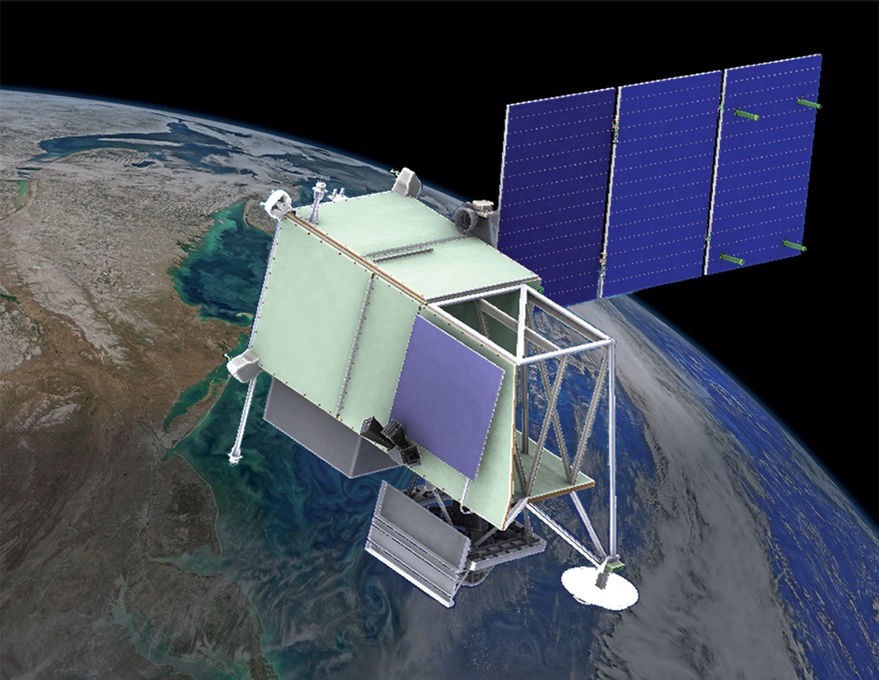
WASHINGTON — NASA’s fiscal year 2020 budget request is facing scrutiny from nearly all quarters for its proposals to cut science missions and education programs as well as defer work on an upgraded version of the Space Launch System.
The proposal, released March 11, offers $21.02 billion for NASA in 2020, a decrease of about $480 million over what the agency received in 2019 in an appropriations bill signed into law Feb. 15. Those cuts, though, are not distributed equally among the agency’s various directorates.
NASA’s science programs would receive $6.3 billion, a decrease of $600 million from what they received in 2019. That includes a 30 percent cut for NASA astrophysics programs excluding the James Webb Space Telescope, which is funded in a different budget line.
The budget proposal offers a sense of déjà vu. For the second year in a row, the budget proposes cancelling the Wide Field Infrared Survey Telescope (WFIRST), the next large astronomy mission after JWST. For the third year in a row, it calls for cancelling two Earth science missions, the Plankton, Aerosol, Cloud, ocean Ecosystem (PACE) spacecraft and the Climate Absolute Radiance and Refractivity Observatory (CLARREO) Pathfinder instrument for the International Space Station. NASA said cancelling those three programs would save more than a half billion dollars compared to 2019.
One senator reacted strongly to those proposed cancellations. “The WFIRST and PACE missions will provide experts with a crucial understanding of space, our ocean and our atmosphere,” Sen. Chris Van Hollen (D-Md.) said in a March 12 statement to SpaceNews. Both PACE and WFIRST are run by the Goddard Space Flight Center in Maryland.
“These missions hold clear benefits for pioneering research and scientific innovation that are vital to our future, and the administration’s decision to strip their funding is shortsighted and deeply misguided,” said Van Hollen, a member of the Senate Appropriations Committee. “I will continue working in the Senate to maintain both our investment and oversight of these programs.”
The Planetary Society, in a March 11 statement, praised “commendable aspects” of the budget proposal, including nearly $600 million for the Europa Clipper mission and funding to start work on a Mars sample return effort. However, the overall budget “would start the decade by cutting nearly half a billion dollars from NASA,” it stated. “This is the wrong way to kick off an otherwise promising era of discovery and exploration.”
The budget proposal also seeks to close NASA’s education office, now known as the Office of Science, Technology, Engineering and Mathematics (STEM) Engagement, just as the 2018 and 2019 budget proposals requested. Those earlier efforts encountered bipartisan opposition in Congress, and NASA’s education programs received $110 million in the 2019 spending bill.
This latest proposal has been criticized by organizations, who cited similar cuts in education funding in proposals for other agencies. “Education initiatives like Sea Grant and Space Grant and NASA’s educational programs are slashed to levels that would stymie support for young and emerging scientists and research innovation,” the American Geophysical Union noted in a March 11 statement.
Changes to NASA’s exploration programs, including plans to defer work on the more powerful Block 1B version of the SLS, prompted a critique from the Coalition for Deep Space Exploration, an industry group. It noted that proposed funding increases went primarily to programs that involve public-private partnerships, including a new program to develop large lunar landers that could eventually be used to transport astronauts.
“This budget appears to overly rely on public-private partnerships to address funding shortfalls due to the proposed topline budget cut,” Mary Lynne Dittmar, president and chief executive of the organization, said in a March 12 statement. “It is our hope that Congress will balance funding in support of all of the agency’s key priorities, rather than forcing false trades between important missions.”
The budget request’s plan to cut funding for the SLS by $375 million and defer work on the Block 1B version is likely to face opposition from Sen. Richard Shelby (R-Ala.), chairman of the Senate Appropriations Committee. While Shelby’s office did not respond to a request for comment March 12 about the proposal, he made clear recently his support for the vehicle.
“As chairman of the appropriations committee, I have more than a passing interest in what NASA does. And I have a little parochial interest, too, in what they do in Huntsville, Alabama,” he said March 6 at a Space Transportation Association luncheon featuring Jody Singer, head of the Marshall Space Flight Center, located in Huntsville. Marshall is the lead center for SLS development. “Jody, you keep doing what you’re doing. We’ll keep funding you.”
Bagikan Berita Ini














0 Response to "NASA criticized for proposed budget cuts - SpaceNews"
Post a Comment